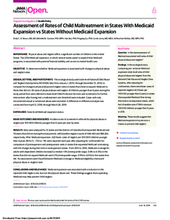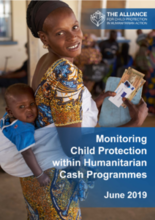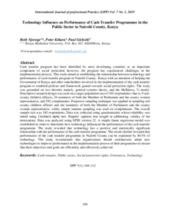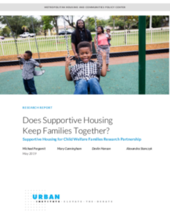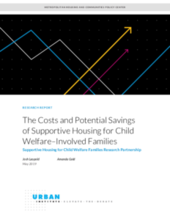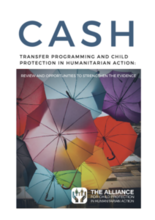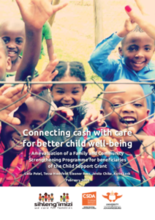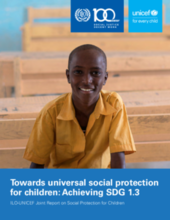Displaying 91 - 100 of 461
The purpose of this study was to determine whether Medicaid expansion is associated with changes in physical abuse and neglect rates of children in the US.
This paper from the Alliance for Child Protection in Humanitarian Action summarises findings from an initial scoping study, which seeks to review how child protection outcomes are captured when monitoring multi-purpose humanitarian cash programmes. The paper proposes a theory of change of the possible links between cash and child protection to inform the development of a monitoring strategy, including hypotheses that humanitarian cash might contribute to prevention of family separation, reduction of family violence, and supporting foster and temporary caregivers to care for separated and unaccompanied children.
The purpose of this study was to establish the relationship between technology as a capacity building strategy and performance of the orphans and vulnerable children cash transfer program in Nairobi County, Kenya.
This report provides findings from the Urban Institute's impact analysis of a program that provided supportive housing to families in the child welfare system in the US.
This study evaluated the effectiveness of the US Department of Health and Human Services’ Administration for Children and Families funded Partnerships to Demonstrate the Effectiveness of Supportive Housing for Families in the Child Welfare System, a five-year, $25 million demonstration that provided supportive housing to families in the child welfare system, in five sites. This report summarizes the results of the cost study, which estimates the costs of the housing and services offered in the demonstration and any savings, or additional costs, resulting from the demonstration’s effects on families’ use of homeless programs and child welfare services.
This report summarizes the evidence for cash transfer programming and child protection in humanitarian contexts and recommends areas for action and further research.
This study examined the relationship between receipt of child care subsidies and child maltreatment investigations in a sample of low‐income mothers in Illinois, USA.
Using synthesis and an integrative approach, the article analyzes laws, policies, and institutions that protect the rights and promote the welfare of orphaned children in the Philippines.
This report presents the findings of an intervention study evaluating the short-term outcomes of Sihleng’imizi Family Programme, an evidence-based preventative social-educational intervention.
UNICEF and ILO published a joint report aiming to contribute to the ongoing discussions about the future of social protection for children.

